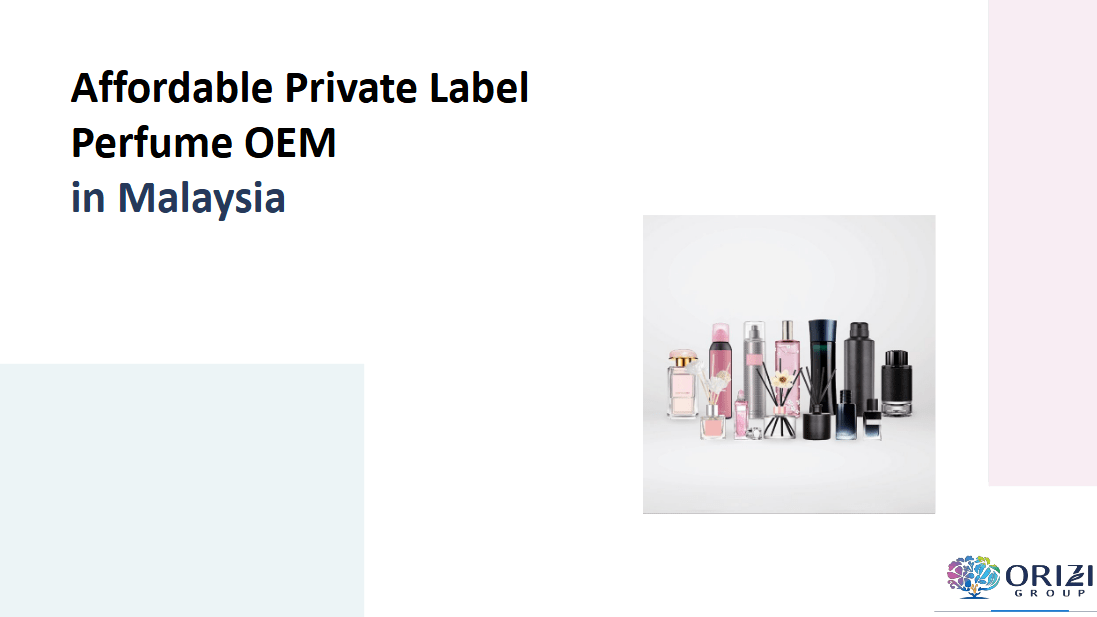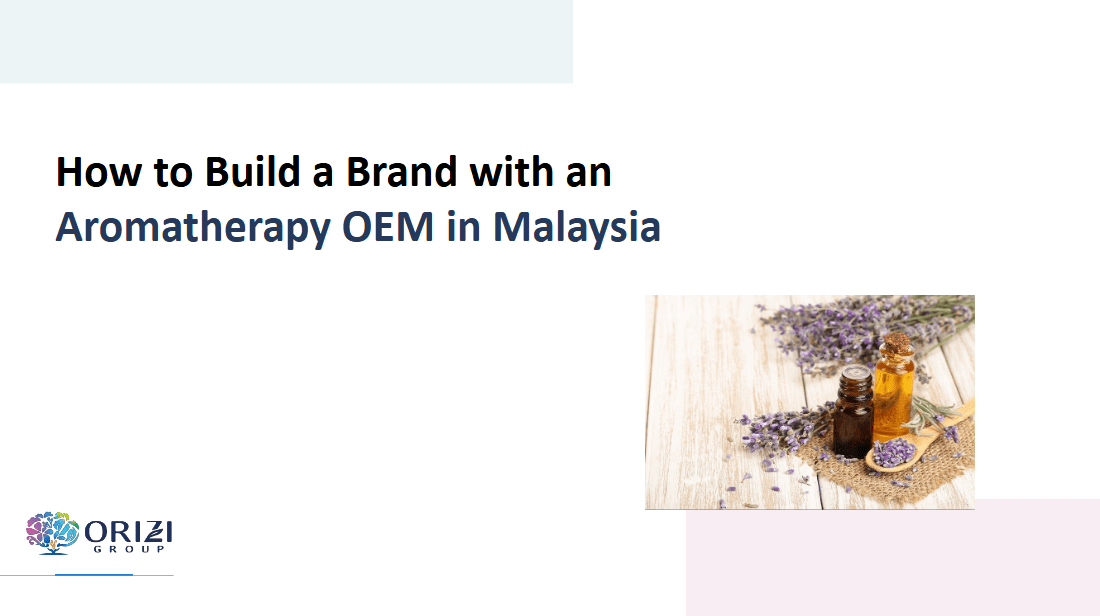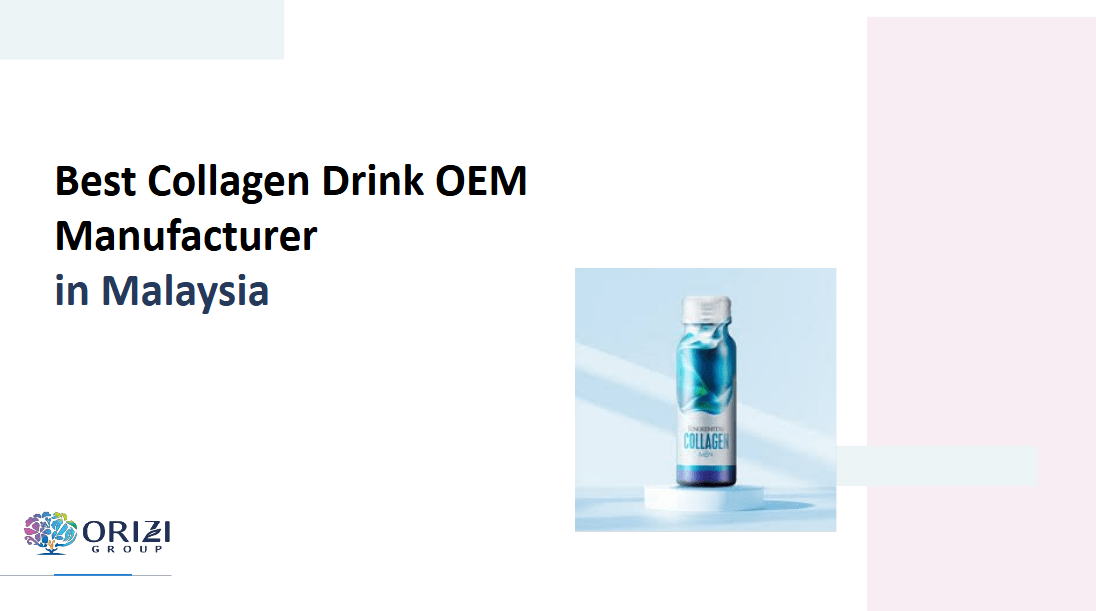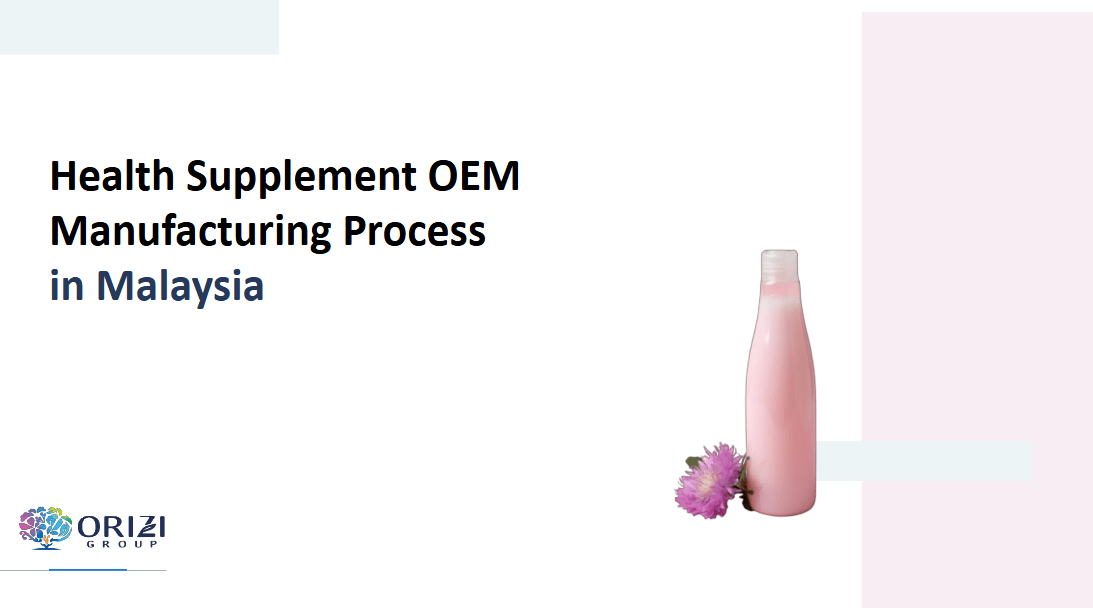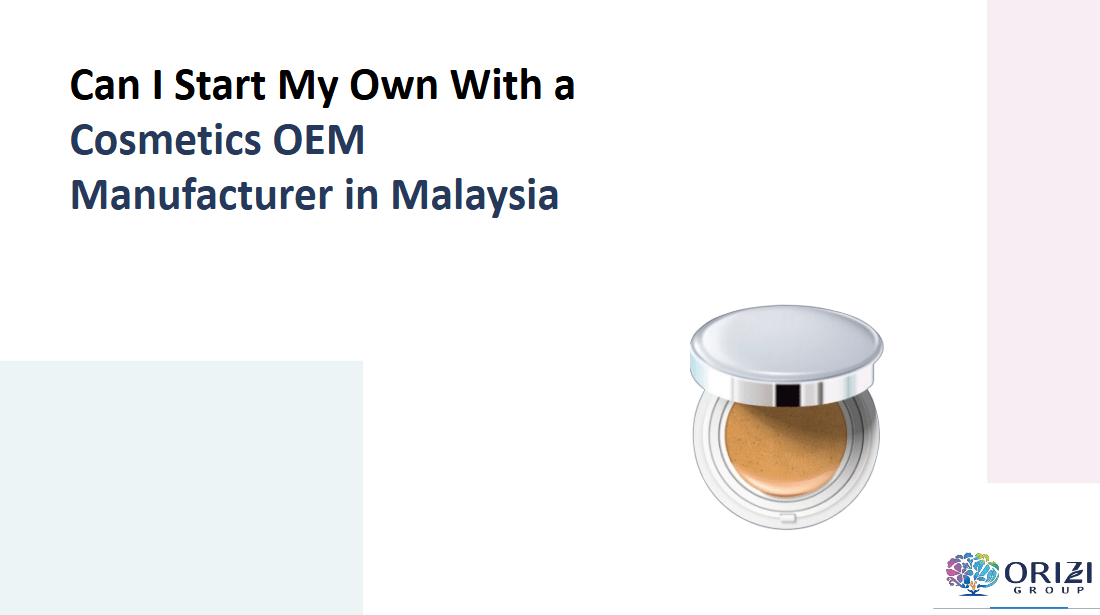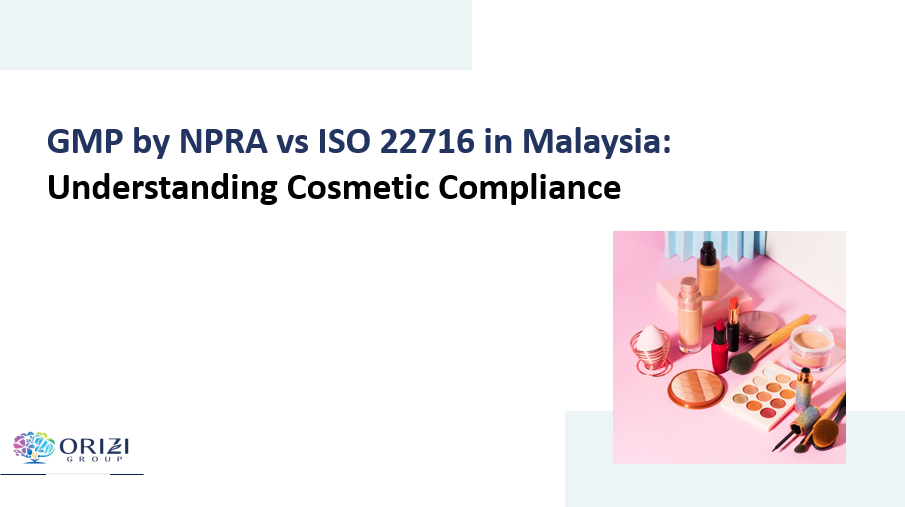
Table of Contents
If you’re planning to manufacture or sell cosmetic products in Malaysia, it’s important to understand the difference between GMP by NPRA (local Malaysian GMP) and ISO 22716 (the international GMP standard for cosmetics). While both are related to good manufacturing practices, they serve different purposes and are required in different contexts. This article will help you understand how they compare, when each is needed, and what it means for your skincare or cosmetic business.
What Is GMP by NPRA (Malaysia)?
GMP by NPRA refers to Good Manufacturing Practice guidelines set by Malaysia’s National Pharmaceutical Regulatory Agency (NPRA) under the Ministry of Health (MOH). It is:
- ✅ Mandatory for all cosmetics factories operating legally in Malaysia
- ✅ A prerequisite for KKM (MOH) product notification
- ✅ Specific to Malaysian regulatory requirements
- ✅ Often issued after an audit or compliance declaration by NPRA or recognized authorities
It ensures that cosmetic products are manufactured, stored, and handled safely, preventing contamination, mislabeling, and poor quality.
If your product is sold in Malaysia with a NOT number, it must be manufactured in a GMP-certified facility approved by NPRA.
What Is ISO 22716?
ISO 22716 is the international standard for Cosmetic GMP, published by the International Organization for Standardization (ISO). It is:
- ✅ Widely accepted by global markets, including the EU, GCC, and premium retailers
- ✅ Focused on product quality, documentation, hygiene, and traceability
- ✅ Voluntary in Malaysia, but often required for export or high-end contracts
- ✅ Audited by international certification bodies like SGS, TUV, Bureau Veritas, etc.
ISO 22716 certification helps brands show that their products are manufactured under globally recognized, standardized processes—adding credibility to your private label or OEM brand.
Key Differences: GMP by NPRA vs ISO 22716
| Feature | GMP by NPRA (Malaysia) | ISO 22716 (International) |
|---|---|---|
| Issuing Authority | NPRA – Ministry of Health, Malaysia | International ISO bodies (e.g., SGS, TUV) |
| Mandatory in Malaysia | ✅ Yes (for product notification) | ❌ No (optional, but valuable) |
| Required for Exports | ❌ Not usually accepted outside Malaysia | ✅ Yes – widely accepted internationally |
| Export Benefit | Limited to Malaysia | High – supports EU/GCC/FDA entry |
| Audit Standard | Local MOH procedures | International ISO audit framework |
| Recognition | Local (Malaysia) | Global (EU, Middle East, SEA, etc.) |
| Focus | Basic manufacturing hygiene & safety | Full GMP system: traceability, QC, SOP, etc. |
Which Certification Do You Need in Malaysia?
If you are producing skincare, cosmetics, or personal care products for the Malaysian market, you must:
- ✅ Manufacture your product in a GMP-certified facility approved by NPRA
- ✅ Ensure each SKU is notified with KKM and holds a valid NOT number
- ✅ Follow Malaysian labeling and safety standards
Even if your factory holds ISO 22716, it still needs NPRA GMP recognition to legally produce cosmetics for Malaysia.
In Malaysia, GMP by NPRA is the legal baseline for manufacturing cosmetics, ensuring your products are eligible for KKM notification and sale. Meanwhile, ISO 22716 is your passport to international expansion, giving your brand recognition in premium retail and export markets. The best strategy? Work with an OEM manufacturer that holds both certifications—ensuring you’re compliant locally and competitive globally.

